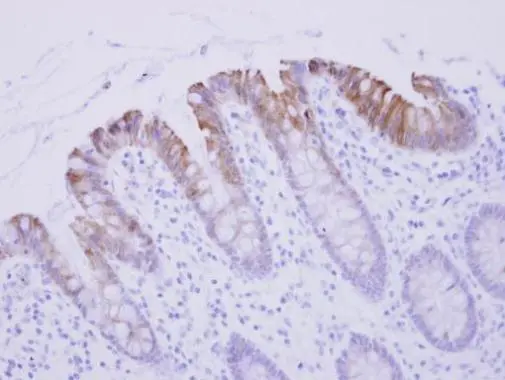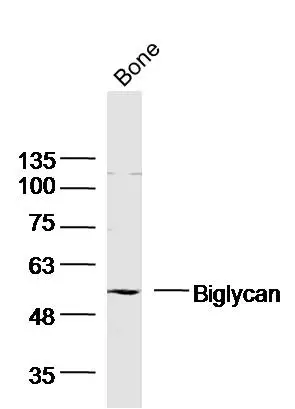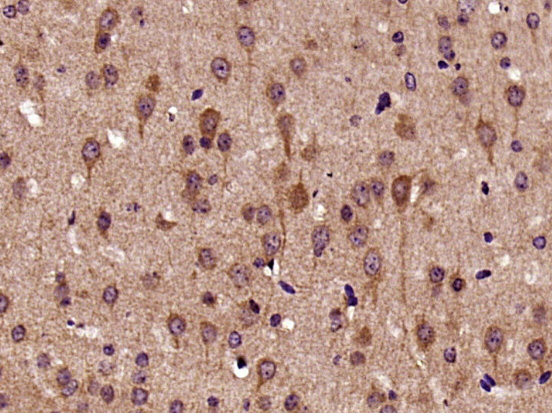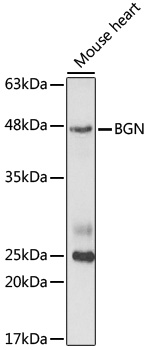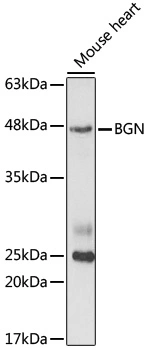
WB analysis of rat skin lysate using GTX89194 Biglycan Preproprotein antibody, C-term. Dilution : 0.1μg/ml Loading : 35μg protein in RIPA buffer
Biglycan Preproprotein antibody, C-term
GTX89194
ApplicationsWestern Blot
Product group Antibodies
ReactivityHuman, Rat
TargetBGN
Overview
- SupplierGeneTex
- Product NameBiglycan Preproprotein antibody, C-term
- Delivery Days Customer9
- Application Supplier NoteWB: 0.1-0.3microg/ml. *Optimal dilutions/concentrations should be determined by the researcher.Not tested in other applications.
- ApplicationsWestern Blot
- CertificationResearch Use Only
- ClonalityPolyclonal
- Concentration0.50 mg/ml
- ConjugateUnconjugated
- Gene ID633
- Target nameBGN
- Target descriptionbiglycan
- Target synonymsDSPG1, MRLS, PG-S1, PGI, SEMDX, SLRR1A, biglycan, bone/cartilage proteoglycan-I, dermatan sulphate proteoglycan I, small leucine-rich protein 1A
- HostGoat
- IsotypeIgG
- Protein IDP21810
- Protein NameBiglycan
- Scientific DescriptionThis gene encodes a member of the small leucine-rich proteoglycan (SLRP) family of proteins. The encoded preproprotein is proteolytically processed to generate the mature protein, which plays a role in bone growth, muscle development and regeneration, and collagen fibril assembly in multiple tissues. This protein may also regulate inflammation and innate immunity. Additionally, the encoded protein may contribute to atherosclerosis and aortic valve stenosis in human patients. This gene and the related gene decorin are thought to be the result of a gene duplication. [provided by RefSeq, Nov 2015]
- ReactivityHuman, Rat
- Storage Instruction-20°C or -80°C,2°C to 8°C
- UNSPSC12352203


